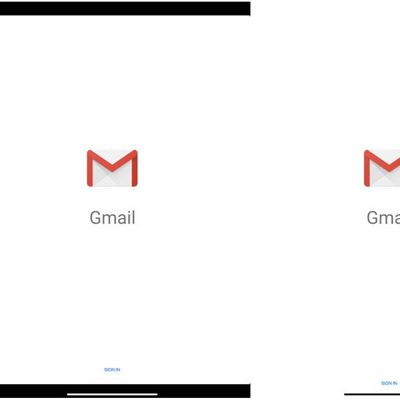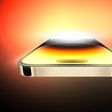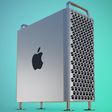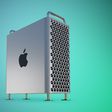Apple last week launched an updated version of the 13-inch MacBook Pro, and it is the first Mac that is equipped with an updated M2 chip. As it's using a brand new chip, we thought we'd pick up the M2 MacBook Pro and compare it to the prior-generation M1 MacBook Pro to see just what's new.
For the video comparison, we're using the entry-level 13-inch M2 MacBook Pro with 8GB unified memory and a 256GB SSD, and comparing it to the entry-level 13-inch M1 MacBook Pro with 8GB unified memory and a 256GB SSD, so this is a direct comparison between the new machine and its predecessor.
Design wise, there are no differences because Apple kept the chassis and the internal components the same, with the update limited to the internal chips. The bezels are the same, the MacBook Pro still has a Touch Bar, and it continues to use USB-C with no MagSafe port.
The M2 chip in the MacBook Pro features an 8-core CPU, a 10-core GPU, and support for up to 24GB unified memory, while the M1 included an 8-core CPU, an 8-core GPU, and up to 16GB unified memory. As a side note, while the base machine ships with 8GB, it's almost always a good idea to go up to at least 16GB for improved performance.
When it comes to CPU performance, the M2 beats out the M1. Though there's still an 8-core CPU, single-core Geekbench speeds clock in at up to 12 percent faster than the M1, while multi-core scores can be up to 20 percent higher. In our own testing, we saw more varied results with an eight percent improvement in single-core performance and a 12 percent improvement in multi-core performance.
As for GPU performance, the M2 is much faster than the M1 because it has two additional cores. Geekbench Metal scores were 35 percent better with the M2, and 3DMARK frame rate benchmarks saw the M2 earning 40fps while the M1 earned 29fps.
In real-world usage, video export times were about the same for a basic timeline, with improvements on the M2 when adding more effects and plugins.
There has been some controversy over the 256GB SSD in the MacBook Pro, which has been seeing slower speeds on Blackmagic disk speed tests. Apple used a single 256GB NAND flash storage chip for the M2 MacBook Pro, while the M1 model had two NAND chips likely at 128GB each. Multiple NAND chips allow for faster speeds in parallel, which means the M1 MacBook Pro's 256GB SSD is notably outperforming the M2 MacBook Pro's 256GB SSD. Note that this is an issue limited to the 256GB models, as the 512GB models are not exhibiting the same problem.
On machines with just 8GB memory, the SSD is engaged for virtual memory when needed, and a slow SSD can mean slow overall performance speeds, which is something to be aware of. We did some real-world tests transferring large files and did see faster speeds on the M2, but other performance testing by YouTube channels like Max Tech have had different results and have seen performance hits on the M2 compared to the M1.
To avoid potentially disappointing performance, it's probably best to upgrade the SSD to 512GB if you're going to get the M2 MacBook Pro, and picking up more memory is also a good idea because it can't be upgraded later. With the base model the subject of controversy, those considering the machine may also want to simply wait for the M2 MacBook Air, set to launch in July.
For our full comparison of the M1 MacBook Pro and the M2 MacBook Pro, make sure to watch our video up above. Have an M2 MacBook Pro? Let us know what you think in the comments.


















Top Rated Comments
"Most people" will think they are paying for a better and faster machine. It is a reasonable assumption. Since it's newer they'd expect everything to be the same or better.
Since it's called M2 vs M1, they'd expect the chip to be faster without having other components drag it back down.
"Most people" will not know they are not getting what they pay for. "Most people will not notice it" actually makes it worse. It makes this seem like a form of fraud.
You'll see stories about
* M2 MacBook Air vs M1 MacBook Air
* M2 MacBook Air vs M1 MacBook Pro
* M2 MacBook Air vs M2 MacBook Pro
* M2 MacBook Air vs M1 Pro MacBook Pro
* M2 MacBook Air vs M1 Max MacBook Pro
So why would this assumption be stupid ? I for one would certainly have fallen in this trap, and I think everybody would. Fortunately, some people on YouTube did benchmarks and it made the news.
To warn users they're not getting what they were anticipating a pro level device should be?